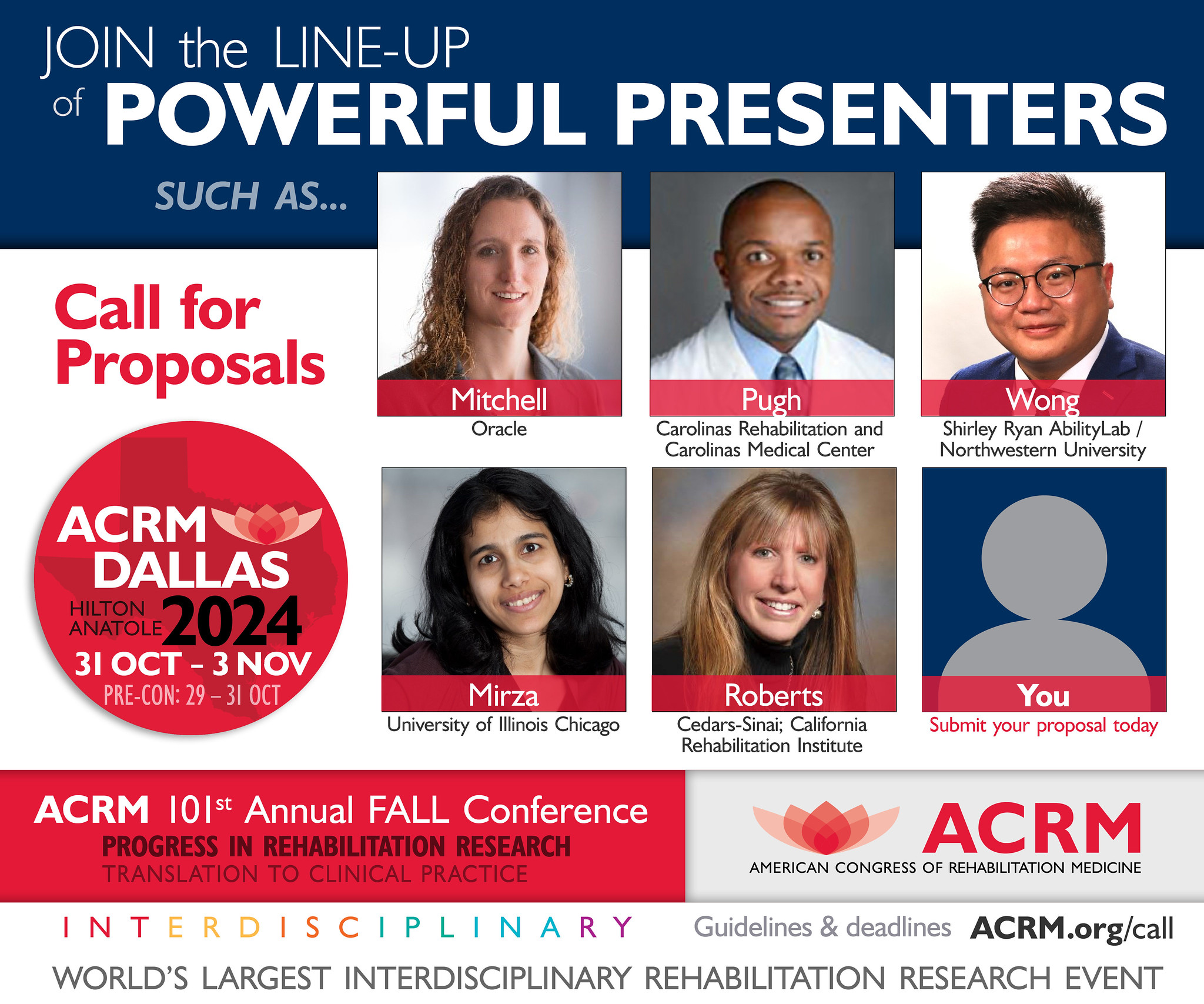Get to know and learn from your peers!
This new Research Spotlight column is intended to help you get to know the work of ACRM members from all career stages and disciplines, and to give you some insight about the different paths that people have taken along their career, and some words of wisdom about how is best to succeed as you navigate this path. We want to include you in one of our upcoming newsletters, so don’t be shy—contact Alison Cogan about this opportunity now!
 INTRODUCING Asha Vas, PhD
INTRODUCING Asha Vas, PhD
Assistant Professor
Texas Woman’s University
What is your current research focus or area you are most excited about?
My research for over a decade is Neuroplasticity following cognitive training and top-down cognitive assessments. Majority of my research in the last few years focused on a training program called Strategic Memory Advanced Reasoning Training (SMART) in adult TBI populations. Specifically, SMART randomized trials examined effects of SMART on cognition, functional outcomes, and convergence of behavioral and imaging measures. With regard to assessment metrics, I examined sensitivity and specificity of functionally relevant top-down metric in adult TBI populations. I believe more research involving triangulating methods (behavior, physiological) will best characterize and monitor higher order cognition. I am excited to share, that in recent years, I expanded the assessments and training to adult Stroke populations and graduate students at Texas Woman’s University (TWU), where I currently teach.
What prompted/motivated you to choose that area?
Almost two decades ago, as an under graduate intern in OT school, I was fascinated by the generalized real life gains following clinic/lab based cognitive training. Small gains in executive functions appear to have large impact on many domains in life- and this was worth exploring further!
Briefly, what path did you take to get there? Or what is your career trajectory- long-term goal?
My path to becoming a cognitive neuroscientist evolved, refined, and expanded over the years. As an undergraduate OT, I was interested in cognitive training in clinical populations, especially neurological conditions. During my Master’s studies, I focused on TBI cognitive training and rehabilitation research at Mayo Clinic, Rochester, MN. My research interest narrowed further into Frontal lobe/ Neuroplasticity during my PhD in Cognition and Neuroscience at the Center for BrainHealth, University of Texas at Dallas. As a post-doctoral fellow and a research scientist, I expanded cognitive training initiatives to TBI community at large including in-person and online delivery formats. I continue cognitive training in clinical populations and has recently began testing SMART program with graduate students at TWU.
With regard to career-trajectory long-term goal, I hope to advocate for top-down assessments and cognitive training programs, especially in adults with mild- moderate TBI. As a first step in this direction, I am in the process of developing a Neuroplasticity Model to guide therapists to integrating top-down cognitive training strategies in daily practice.
What barriers or facilitators did you encounter along the way? How did you overcome it?
Barriers that I encounter are (a) limited research time devoted to writing, and (b) lack of a centralized source to keep researchers abreast of small foundational grants. Lack of funding is often a deterrent for clinicians to pursue research. This limitation is resources discourages many clinicians to bring for the novel ideas to fruition.
Did you have any pivotal experience that propelled your research success?
Obtaining pilot grants, as a PhD student and a post-doctoral fellow certainly propelled my confidence and collaboration, which led to a multiple research opportunities.
What is your advice for young scientists? Words of wisdom?
- Think Big, even if you have to start small (which usually is the case).
- I strongly encourage periodic communication (prefer phone calls and in person meetings to emails) with potential collaborators.
- Aim for ‘innovation’ and ‘resilience’ in cognitive training.








